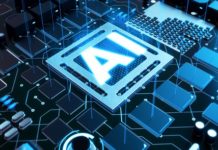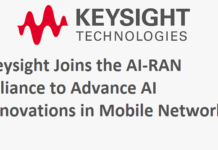
Artificial intelligence (AI) has the potential to revolutionize the academic performance of students by drastically improving its effectiveness and efficiency. AI can be used in various ways to facilitate better learning outcomes, including personalized instruction, adapting course material to individual needs, providing feedback on student performance, and suggesting new learning strategies.
Personalized instruction
Artificial Intelligence can provide an individualized learning experience by taking into account a student’s strengths, weaknesses, and interests. AI can be used to tailor course material to the specific needs of each student so that they are able to learn at their own pace.
Adapting course material
AI can also be used to adapt curriculum materials and assessments according to each student’s pre-existing knowledge and level of understanding. AI can identify areas in which the student struggles, allowing for targeted instruction that is more likely to lead to successful outcomes. It is comparable to using https://domypaper.me/do-my-assignment/, where you get professionals to tailor your assignments according to your needs.
Providing feedback
Artificial Intelligence can track a student’s progress in real time by providing feedback on their performance throughout the course. This can help students assess their own learning and adjust their approach accordingly.
Suggesting new learning strategies
Artificial Intelligence can also be used to suggest new strategies for learning difficult concepts. By analyzing a student’s performance and identifying areas of difficulty, AI can suggest different techniques that the student may find more successful.
Developing better study habits
AI can also be used to help students develop better study habits and strategies. AI can provide recommendations on how to best manage workloads, make use of available resources, and optimize learning processes. This can help ensure that students are dedicating themselves to their studies in the most efficient way possible.
AI can also help students understand concepts more deeply and accurately
By providing more visual aids and simulations, AI can help students better understand complex topics and develop stronger comprehension skills. As well as at https://domyessay.me/do-my-homework, you can get help with any assignments and deeper understanding of course subjects.
AI can help teachers use data-driven methods to improve instruction
AI-based applications can track student performance and provide insight into how well students are understanding the material. This data can be used to adjust teaching strategies, create tailored learning paths for each student, and identify which topics need extra attention or review. In addition, AI-based analysis can also be used to assess student responses and provide feedback for teachers on how best to engage students.
Artificial intelligence can automate basic activities in education, like grading
AI can also streamline administrative activities, such as course enrollment and attendance tracking. This can free up more time for teachers to focus on creating meaningful learning experiences and providing personalized instruction.
Educational software can be adapted to student needs
With AI, software can be designed to respond to student needs and provide individualized feedback. This helps ensure that students are staying engaged and empowered to take ownership of their learning.
AI is altering how we find and interact with information
AI-based search engines can quickly and accurately identify relevant resources for student research, saving time and effort. In addition, AI-based chatbots can simulate conversations with students to answer questions, provide feedback, and provide personalized instruction.
Artificial Intelligence could change the role of teachers
AI could be used to automate repetitive tasks and provide teachers with more flexibility and time for creative teaching. AI can also allow teachers to focus on delivering personalized instruction, allowing them to better meet each student’s needs in the classroom.
AI can make trial-and-error learning less intimidating
By providing real-time feedback, AI can help students identify areas that need improvement and make adjustments quickly. This could reduce the fear of failure, allowing students to take more risks in their learning.
AI can assist with extensive data collection and analytics tasks
AI-based applications can automate data collection and analysis, providing teachers with a better understanding of student progress and performance. This could include detailed analysis of student responses to assessments, assignment grades, and course enrollment trends. Artificial Intelligence -based analytics can also be used to identify patterns that could suggest areas for improvement or additional support. AI applications can also assist with essay writing services. Automated scoring systems can provide feedback on the best cheap essay writing services in minutes.
Overall, Artificial Intelligence has the potential to revolutionize education and improve academic performance. By automating mundane tasks and enabling personalized instruction, AI can help students become more engaged and empowered learners and improve their academic performance.


















